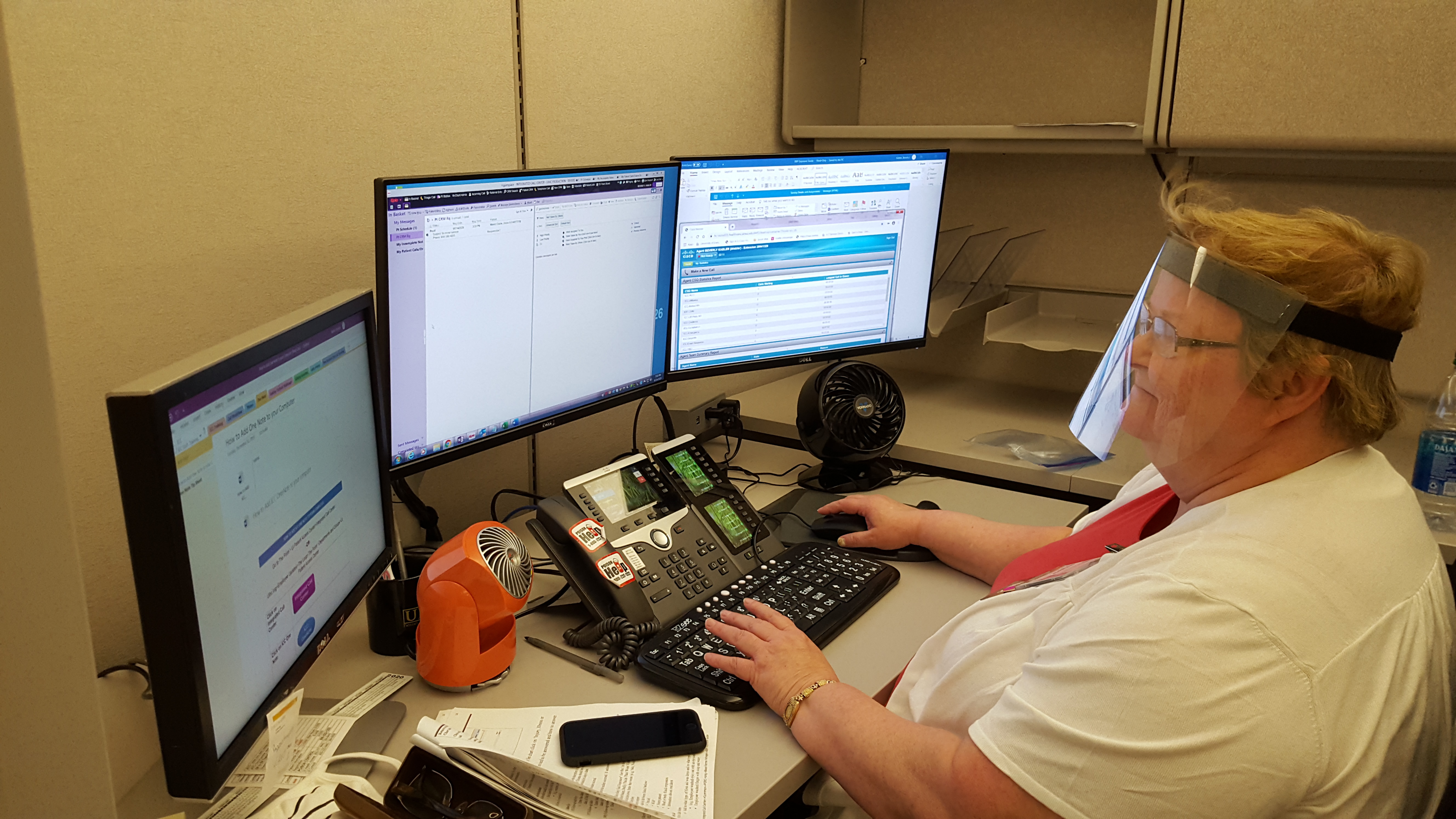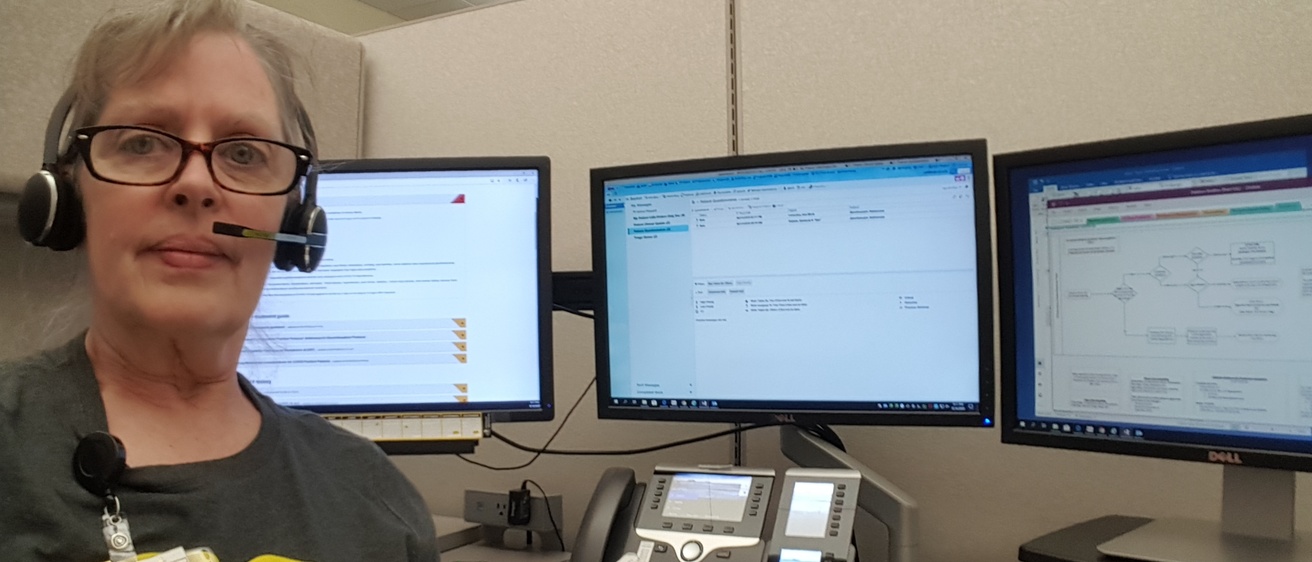A human factors engineering researcher at the University of Iowa is collaborating with her colleagues in the UI College of Nursing, the University of Iowa Hospitals and Clinics, and the University of Wisconsin-Madison Hospitals and Clinics to model decision making among triage nurses during the COVID-19 pandemic. Their joint work is being funded by a new NSF RAPID grant.
“Our research is a great example of what’s possible when a human factors engineer, and researchers and practitioners in evidence-based nursing come together to solve a timely and critical problem the pandemic has prompted” said Priyadarshini Pennathur, associate professor of industrial and systems engineering. The University of Iowa is the lead institution on the grant.
Triage nurses act as frontline gatekeepers and perform a difficult balancing act during a pandemic. They must not only ensure that patients who need immediate care get it in a timely manner but must also filter incoming patients to prevent infections and to reduce undue burden on hospital resources. During a pandemic, they make particularly complex and risky decisions. The complexity and risk in their decisions are influenced by how the nurses themselves perceive the risk of a pandemic, and how they associate and project their risk perception with the information a patient provides.
Conventional triage decision making criteria, protocols and processes based only on a linear, discrete, “single-symptom at a time” risk screening approach are woefully inadequate to tackle triage decisions in a pandemic of this scale and complexity. The project is studying triage nurses from two large academic medical centers and is analyzing triage phone calls and screen records for mapping a nurse’s patient-specific decision-making trajectories to reveal their constraints and how they managed them.
At the UI, Pennathur will collaborate with Laura Cullen, and Stephanie Edmonds, both nurse research scientists in the UI College of Nursing, and Elise Arsenault Knudsen, a nurse research scientist at UW Health - Hospitals and Clinics.
“Triage decision making criteria and protocols must reflect a deep understanding of how nurses weigh patient symptoms, and match them to disease conditions, while also managing a multitude of complex, interrelated decision constraints, including their own risk perceptions, and limited, uncertain, confounding information,” said Pennathur. “It is impossible to develop good criteria for triaging without involving practicing nurses and nurse scientists who not only are at the frontlines combating the pandemic, but are also at the frontlines in making contributions to research into our preparedness for future pandemics by devoting time to this project and by sharing their insights into the inner workings of decision-making during triaging.”
For more information on the project, please contact Professor Pennathur at priyadarshini-pennathur@uiowa.edu

